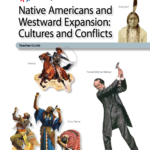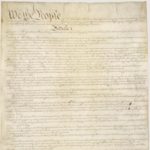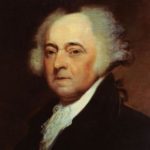The state of the economy during the presidential election season has a significant impact on not just the approval rating of the incumbent president at the time, but also has an impact on the policies in which presidential candidates run on. Additionally, the state of the economy also influences who will come out to vote in that year. This year, 2020, it is just one of many factors that may affect voter turnout but the economy may be underestimated. This exercise will encourage students to evaluate how other fluctuations in the economy may affect the ratings, policies, and decisions of the 2020 presidential candidates.
Bullying and Speech Policies in Your School and Community
Students use a poem to discuss bullying and then explore policies within their school, community, and state.
Women & the American Story: A Nation Divided, 1832-1877
This free curriculum unit from the New-York Historical Society delves into the ways women participated in all aspects of the Civil War and on both sides of the conflict, from the early debate over the expansion of slavery through the end of federal Reconstruction. Materials examine this pivotal moment in American history through the experiences of diverse women and consider how the war and then Reconstruction policies shaped their lives.
Choice Board – How Effective Are Presidential Campaign Ads?
The methods in which candidates, political parties and interest groups promote their positions and policies have evolved since the first television campaign ads aired. In this lesson, students will view videos of historical presidential campaign advertisements and analyze the features found within each to determine the overall effectiveness.
Drug Testing in Schools
This lesson calls for students to take a stand on whether there should be drug testing in schools or not. Students stand along a spectrum – ranging from “test everyone” to “never test anyone” – to represent their position on the issue. As the class discusses and debates, students are encouraged to consider opposite views, and can move along the spectrum to reflect changed opinions. The lesson concludes with a conversation about the possible outcomes of the policies brought up during the session.
Native Americans: Cultures and Conflicts (CKHG Unit)

Across 7 lessons, this unit explores the ways of life of diverse Native American peoples and how their cultures were disrupted, displaced, and profoundly altered by westward expansion and American government policies and practices in the 1800s. Some of the content of this unit is tied to the “Pathway to Citizenship,” an array of civics-focused knowledge, questions, and activities.
The First Amendment: What’s Fair in a Free Country?

Young people have a profound sense of the importance of fairness. “It’s not fair” is often used as a one-size-fits-all argument when a child feels victimized. In situations where the child has an interest in protecting his or her actions, “It’s a free country!” is often the argument of choice. On the other hand, children are very sensitive about speech and policies they consider to have a negative effect on their well-being.
Balancing rights and responsibilities is difficult, even for the Supreme Court. This lesson demonstrates to students that doctrine of freedom of speech and its proper application is an ongoing process.
The Sedition Act: Certain Crimes Against the United States

The Sedition Act of 1798 passed during John Adam’s administration by the Federalist Party touched off a lively debate about the right of free speech. It also presented an early test case to the citizens and government of the United States. In times of war or imminent danger, how do you balance the need for security with the rights of individuals? How can partisan politics affect the process of shaping security policies?
1798: Sedition Act Reins in Newly Established Freedoms
Prominent Republican Party members immediately denounce the Act as a violation of First Amendment freedom of speech and of the press, but the Federal courts move forward with cases brought under the law. The still-new nation is drawn into a tense debate: To what extent should the government of a young nation limit criticism of its leaders and policies to protect its stability in the face of foreign threats?
Individuals Influence Public Policy
In this lesson, students are presented with a controversial school policy and given two viewpoints on the issue. They are then divided into groups, and asked to provide reasons for and against the policy. After deciding whether the policy should be changed or not, the students are asked to reflect on why policies might change and what factors influence policy decisions.